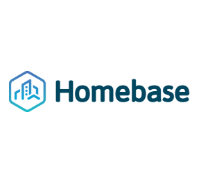Blog articles from 02/2009
The world’s largest carrier Vodafone has awarded a contract to Azingo to develop mobile applications based on LiMo Foundation’s R1 reference stack. LiMo Foundation is an industry consortium formed in early 2007 with the mission to design and deliver an open Linux-based software platform for mobile handsets. Both Vodafone and Azingo are core members of the LiMo Foundation so the deal is not a surprise in any sense. But this could be the tip of an iceberg for what LiMo Foundation is...
Oregan Networks announced the Oregan Media Browser 4.0, which they've dubbed Onyx. It's aimed at the DTV and set-top box markets and provides "simplified accessibility to multiple sources of trusted Internet and personal content on TVs through a single resident TV application that requires minimal set up and can be easily 'called up' in the form of a widget and dismissed without leaving regular broadcast channels or switching TV inputs."
Interesting times in which we...
I'm still trying to make sense of the January retail reports and what is the good news/bad news. At breakfast, The Dallas Morning News had some pretty brutal January retail news. Overall retail sales were down 1.8%. North Texas-based J.C. Penney experienced a 16% decline in same-store sales, and that was pretty good compared to some other results. The Gap was down 23%, and - as you can imagine - other higher-end retailers like Abercrombie, Saks, Nordstrom, Neiman Marcus, and others were...
Two well-known Taiwan-based IT companies now collaborate to jump into a new market that already has too many power players. Asus Computer and GARMIN announced yesterday that they will co-develop, co-brand and co-market new smartphones under the name GARMIN-Asus. Their first smartphone is apparently the long-delayed Nuvifone that GARMIN has been trying to launch since 2Q08. Compared with GARMIN, Asus has a better track record. The company had its first PDA in 2001 and introduced its first...
After Microsoft, RIM and Palm disclosed their respective plan to launch virtual stores for consumers to download mobile applications, Samsung, now the No. 2 mobile handset maker, also jumps in. The South Korean giant will unveil its App store for users of Symbian and Windows Mobile devices during the Mobile World Congress event this month. Although it will open only to UK consumers initially, there is no doubt that the company will expand it to other nations very soon if the UK store...
Now that the U.S. Senate may be making substantial changes to the economic stimulus bill that passed the U.S. House last week, the Congressional Budget Office has offered its take on what some of the new provisions might mean. The CBO's explanation goes a long way to answering some questions I've had about who would oversee the broadband deployments that are intended under the $9 billion grant program to extend access to unserved and underserved areas.
The grant funds would be given...
by | Feb. 5, 2009
Tags: none
Tags: none
Unitymedia has reported its largest broadband and telephony quarterly net additions. Its new services subscriptions including internet, telephony and digital television, were up 66% year-on-year to 1.6 million at the end of 2008.
The company’s biggest growth was seen in the broadband market, where the number of subscribers increased by 111,000 (thats a 103% jump!). Resulting from the digitalization of the basic cable subscriber base, and the introduction of ‘enhanced pay TV...
Google unveiled Latitude today, a location application in Google Map that allows users to track where their friends and family members are. Latitude requires users to sign-up for usage, which means that only opt-in users can interact with each other on the network through location-based services (LBS). But users do have control over who can view their locations—they can even create location “alibis” if they do not want people to know where they actually are. For additional...
Premier Sponsors
Tag cloud
| @ParksAssociates |  |
RT @AdvancedTVNews: The next 12 months could bring some major growth to online-pay TV services, according to @ParksAssociates. via @advance… |










